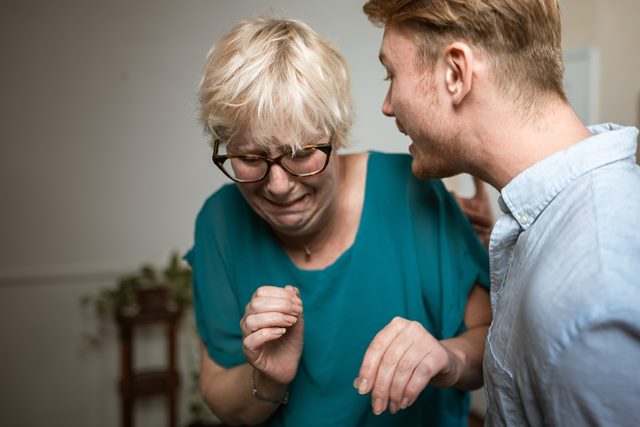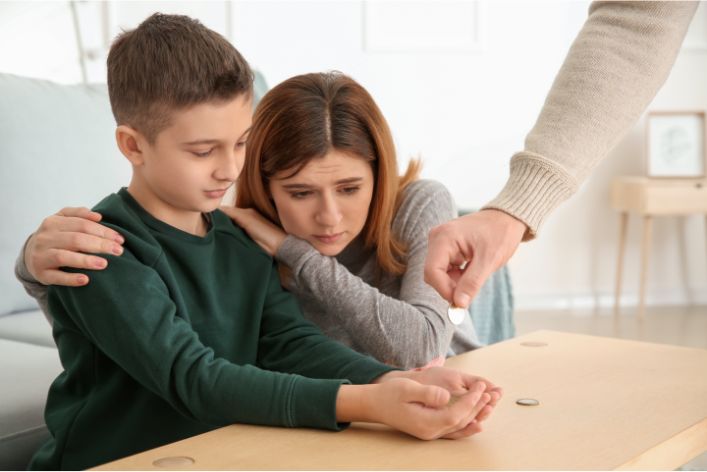Last Updated on February 10, 2023
Effective communication is the key to making meaningful connections and building strong relationships, whether in your personal or professional life.
This means you can communicate with clarity, empathy, and understanding with the right skills and a little effort, leaving you with a network of supportive and fulfilled relationships.
So, we’ve prepared this article to improve your communication skills and strengthen your bonds like never before!

The Importance of Communication in Relationships
Every relationship, whether personal or professional, relies on communication. It is the foundation for relationships that enables us to connect, understand, and support one another.
Good communication skills allow us to express our thoughts and feelings, understand the perspectives of others, resolve conflicts, and foster trust and intimacy.
Without effective communication, relationships can become strained. Misunderstandings can lead to hurt feelings, arguments, and even relationship breakdowns.
On the other hand, when we communicate well, we can deepen our connections, improve our problem-solving abilities, and foster a positive and supportive environment.

Good communication also allows us to navigate the ups and downs of life together, boosting and strengthening our relationship. It encourages understanding, intimacy, and mutual respect in personal relationships. Effective communication can improve collaboration, promote teamwork, and lead to better outcomes in workplace relationships.
Read: How to Improve Your Communication Skills in the Workplace
The Fundamentals of Communication in a Relationship
Communication is at the core of all healthy relationships. However, it can be tricky. Why? Communication can sometimes be complex and require effort, skill, and a willingness to listen and understand.
Communication isn’t always about talking. Here are critical elements you must know:
Active Listening
Active listening is the process of fully attending to what the other person is saying and taking in the meaning of their words. It involves putting aside your thoughts and opinions to focus solely on the person speaking.
When you listen actively, you demonstrate that you care about the other person and are interested in what they have to say.

Clarity and Conciseness
Clear and concise communication is essential in relationships. It ensures that your message is understood and helps avoid misunderstandings.
When you communicate clearly, you avoid ambiguity and use simple language to express your thoughts and feelings. Concise communication also saves time, helping to maintain focus and attention during conversations.
Nonverbal Communication
Nonverbal communication, such as body language, tone of voice, and facial expressions, can convey as much information as verbal communication. Nonverbal cues often carry more weight than words.
You need to be aware of your nonverbal cues and pay attention to others. By doing so, you can better understand the underlying emotions and messages being conveyed and respond accordingly.
Empathy and Understanding
Empathy and understanding are essential components of effective communication. Empathy involves being able to understand and share the feelings of another person.
When you show empathy, you create a sense of connection and rapport, making the other person feel heard and understood. Understanding, on the other hand, involves seeing things from the other person’s perspective and recognizing the reasons behind their thoughts and actions.

Building Strong Relationships Through Communication
Good communication skills enable us to navigate conflicts, offer support, and strengthen our bonds. To build a strong relationship, here are some of the communication tips to consider:
Setting Boundaries
Setting boundaries is an essential aspect of communication in relationships. It involves communicating your needs and expectations and determining what is and isn’t acceptable in the relationship.
Read: 5 Ways to Set Boundaries for Your Mental Health
By setting clear boundaries, you can avoid misunderstandings, reduce conflicts, and create a more positive and supportive environment.
Resolving Conflicts
Conflicts are a natural part of any relationship, but how they are handled can make all the difference. Good communication skills can help you resolve conflicts constructively and respectfully.
When you communicate openly and honestly, you can identify the root cause of the conflict and find a solution that works for both parties.
Giving and Receiving Feedback
Feedback is a crucial aspect of communication in relationships. It allows you to understand how your actions and words are impacting others and to make necessary changes. Feedback should be given and received respectfully and constructively.
When you give feedback, be specific and provide examples, and when you receive feedback, listen actively and avoid becoming defensive.
Expressing Appreciation and Gratitude
Expressing appreciation and gratitude is a simple and effective way to build strong relationships through communication.
When you show appreciation and gratitude, you acknowledge the efforts and contributions of others, and you create a positive and supportive environment.
Regularly expressing appreciation and gratitude can deepen your connections and improve your overall relationship satisfaction.
Conclusively, building strong relationships through communication is a process that requires effort and commitment. Remember, effective communication is a two-way street, and both parties must be willing to listen, understand, and communicate openly and honestly.
With a little effort and patience, you can create strong and fulfilling relationships in both your personal and professional life.

Overcoming Communication Barriers in Relationships
Effective communication is essential to any healthy relationship but can also be challenging. Many barriers, such as emotional triggers, past experiences, and a lack of skills, can prevent us from communicating effectively.
So, what do these potential communication barriers mean in your relationship?
Emotional Triggers
Emotional triggers are events, experiences, or words that evoke a strong emotional response. They can prevent us from communicating effectively by causing us to become defensive, angry, or shut down.
To overcome these feelings, you must identify what triggers you and work on managing your emotions. Mindfulness, self-reflection, and communication skills can help you manage your emotional triggers and improve your communication.
Past Experiences
Past experiences can also affect our ability to communicate effectively in relationships. For example, if you’ve experienced a traumatic event or a relationship that ended poorly, you may have developed negative beliefs and attitudes about communication.
Read: What is Post-Traumatic Stress Disorder (PTSD)?
So, to overcome past experiences, you may seek support, work on processing your emotions, and practice self-reflection and self-awareness.
Lack of Skills
A lack of communication skills can also be a barrier to effective communication in relationships. Good communication skills require effort and practice, and many of us may not have had the opportunity to learn and develop these skills.
To overcome this deficiency, consider communication training or therapy, reading books on communication, or practicing with a trusted friend or family member.
Differences in Communication Style
Different communication styles can also be a barrier to effective communication in relationships. For example, some people prefer direct communication, while others prefer indirect communication.
Understanding your communication style and learning to understand and respect the communication style of others can help you overcome differences in communication style and improve your communication.
Remember, communication is a continuous process; it takes time and effort to overcome barriers and improve your skills. So, be patient with yourself and your partner, and keep working on your communication!

Enhancing Communication Skills through Practice
The good news is that communication skills can be improved with practice. But how do you go about it, right? Below are some tips to help you on this journey:
Practice Active Listening
Active listening is one of the ways to attain a level of effective communication. It involves paying attention to the speaker, avoiding distractions, and showing interest in what they have to say.
To improve your active listening skills, practice focusing on the speaker, asking clarifying questions, and providing verbal and nonverbal feedback.
Show Empathy
Empathy is the ability to understand and share the feelings of others. It is an important component of communication in relationships and can help you build stronger connections.
To enhance your empathy skills, practice putting yourself in the shoes of others, especially avoiding judgment.
Be Assertive
Assertiveness is the ability to express your thoughts, feelings, and needs confidently and respectfully. This is important in communication because it allows you to set boundaries, resolve conflicts, and deepen your connections.
So, to boost your assertiveness skills, express your thoughts and feelings using “I,” and avoid aggressive or passive communication.
Clarity and Conciseness
Clarity and conciseness ensure your message is understood and received how you intended. To enhance your clarity and conciseness skills, try simplifying your language, using short sentences, and avoiding jargon or technical terms.
Reflect and Evaluate
Finally, reflecting and evaluating your communication skills can help you identify areas for improvement and track your progress. To reflect and evaluate, take time to reflect on your communication, ask for feedback from others, and seek out communication training or therapy if needed.
We can always work towards perfection, especially in our relationships.
Before you go…
Hey, thank you for reading this blog to the end. I hope it was helpful. Let me tell you a little bit about Nicholas Idoko Technologies. We help businesses and companies build an online presence by developing web, mobile, desktop, and blockchain applications.
We also help aspiring software developers and programmers learn the skills they need to have a successful career. Take your first step to becoming a programming boss by joining our Learn To Code academy today!
Be sure to contact us if you need more information or have any questions! We are readily available.











